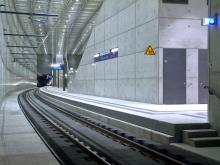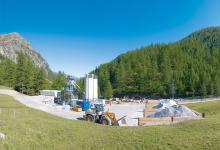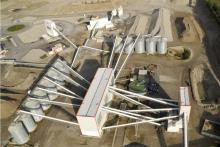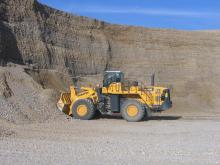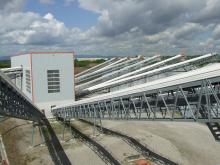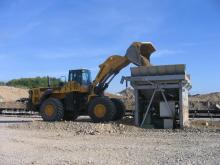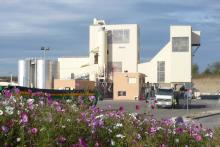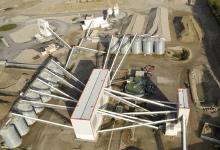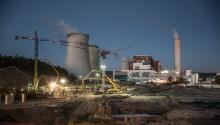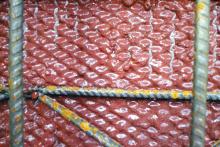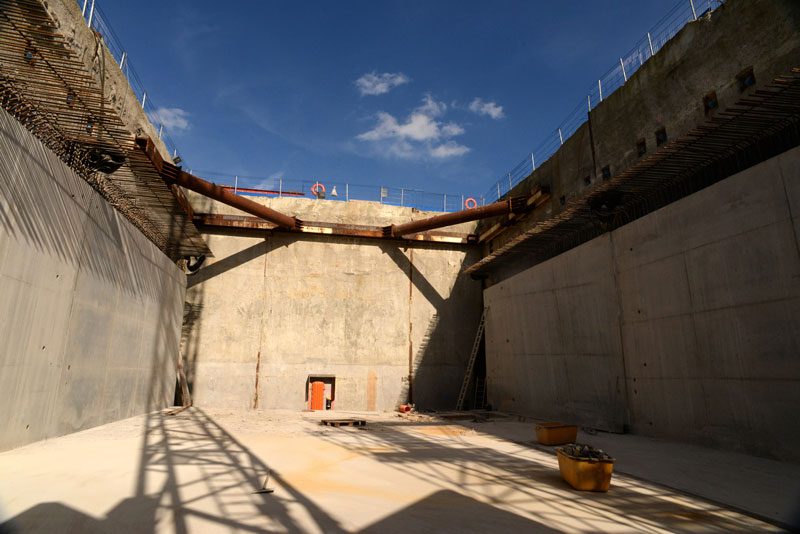
Transportbeton Bremerhaven Osnabrück has invested in a mobile ready-mix concrete facility to ensure sufficient capacity for concreting the floor, walls and cover of the Bremerhaven Port Tunnel.
The
The Bremerhaven Port Tunnel will be opened in 2018-2019.
The transportation links must keep pace with the growing volume, and the tunnel is a key infrastructure project, connecting the city with its international port and associated industrial and commercial areas to the motorway.
Also, providing relief for residents, traffic that is currently overground will be laid underground, leading to reduced noise and exhaust emissions, and public vehicles will be separated from private transport.
The tunnel will be operated as a tube with bi-directional traffic, with its eastern section divided into two tubes with one-way traffic. The length including access ramps is 1,848m for the north tube, and 1,659m for the south tube.
Lutz Petersen, manager of Transportbeton Bremerhaven-Osnabrück, said: “We have contractually guaranteed a maximum hourly output of 80m³ for the tunnel. To fulfill our commitment, we have expanded our capacity through the addition of a mobile production facility. We are, therefore, well positioned to supply the construction site with structural and diaphragm wall concrete, as well as to deliver to our other customers as usual.”
Approximately 30,000m³ of fire-resistant concretes; 80,000m³ of construction concretes, and 90,000m³ of diaphragm wall concretes will be supplied.
The near-surface two-lane tunnel will be built with the cut-and-cover construction method. The water pressure resistant diaphragm walls have a depth of up to 32m, and the 9m long wall panels are filled with concrete from the bottom to the top by means of the tremie method, whereby the end of the pump hose remains permanently immersed below the surface of the concrete.
Cemex developed a special admixture for the diaphragm wall concrete, resulting in stable consistency with limited water content, ensuring the required quality. In addition to the structural concrete used to produce the tunnel floor, the project requires a fire-resistant concrete for the tunnel walls.
Polypropylene fibres are added to the fresh admixture via a special system, and in the case of a fire, the fibres would melt, creating open spaces for water vapor to penetrate.
To ensure sufficient capacity during delivery of concrete for the tunnel walls and additional diaphragm walls, an additional mobile ready-mix concrete plant will be erected for the duration of the project, bringing the number of plants supplying this project to three.
"The stationary high silo plant has a capacity of 80m³/hour, the new mobile row of concrete dosing units achieves an output of 60m³, and added to this is the ready-mix concrete plant of our supply partner,” says Lutz Petersen.
“This enables us to ensure continuous supply of all parallel construction stages."

